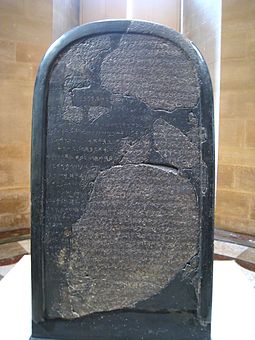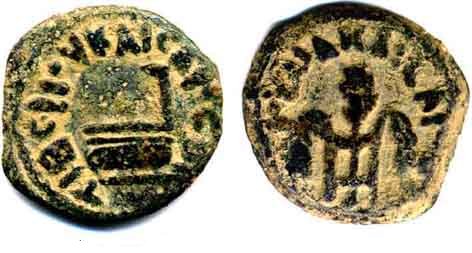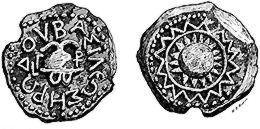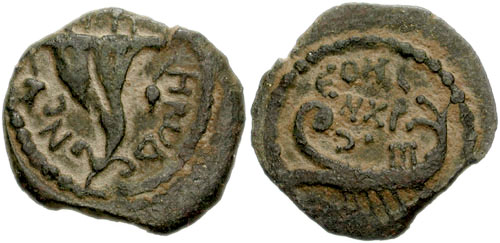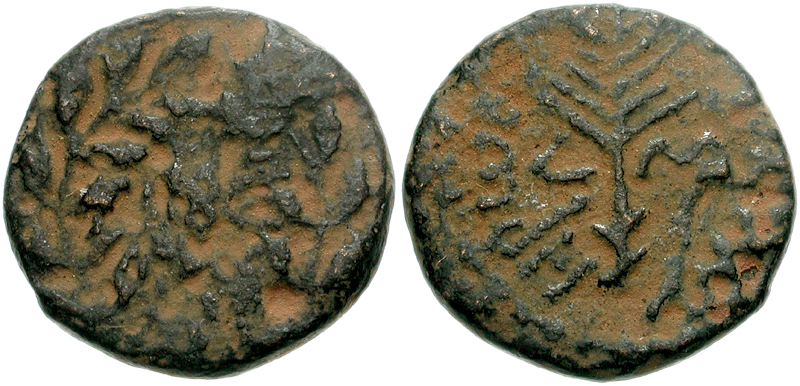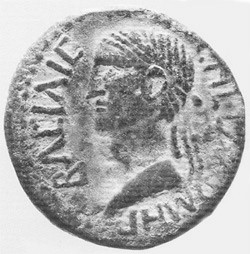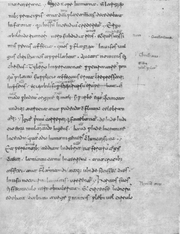History - the Frame of Reference Part 1 - The Place
History is a frame of reference in which we may begin to discuss any topic. It just depends on how far back we want to dig [go] for a foundation to then build upon.
Ie. we could begin with discussing the economy of Rome during the 1st Century BC unto 1st Century AD, but we would then have to assume the place of Rome existed to begin with, unless we question this, and so must move our starting position further back to show that Rome actually existed [that is came to exist] to begin speaking about its economy at any given point, and so on and so forth.
So, most people, when having this discussion, will say that they will fully acknowledge and admit to the fact that the Bible has accurately recorded historical names, places and events in it.
[It is from this starting point that then the discussion usually enters about what that actually means.]
The Bible [both Old and New Testaments; Genesis to Revelation] can be tested like any other historical source for its factual and historical validity.
This means that in each case we can go to the gathered historical records, including but not limited to the archeological; paleontological; paleobotanical; anthropological and even the geological data.
Let us get a quick definition of 'history' that shall be utilized in any further replies; "History (from Greek ἱστορία - historia, meaning "inquiry, knowledge acquired by investigation"[2]) is the discovery, collection, organization, and presentation of information about past events. ... Traditionally, historians have recorded events of the past, either in writing or by passing on an oral tradition, and have attempted to answer historical questions through the study of written documents and oral accounts. For the beginning, historians have also used such sources as monuments, inscriptions, and pictures. In general, the sources of historical knowledge can be separated into three categories: what is written, what is said, and what is physically preserved, and historians often consult all three.[17]"[Wikipedia; History] - History - Wikipedia, the free encyclopedia.
As can easily be shown by numerous examples, places in the scripture can be verified by such methods as so noted above.
For instance, the Bible directly speaks of the city of "Jersualem":
[1]And, behold, I send the promise of my Father upon you: but tarry ye in the city of Jerusalem, until ye be endued with power from on high.Luke 24:49
[2] And he was seen many days of them which came up with him from Galilee to Jerusalem, who are his witnesses unto the people.Acts 13:31
[3] But now I go unto Jerusalem to minister unto the saints. Romans 15:25
etc.
We can then go to other sources [wikipedia; encyclopedias; google maps; historians like Josephus the Jewish Historian, Tacitus the Roman Historian, etc] and verify that such a city existed, and even today still exists, though somewhat war-torn and rebuilt in certain areas, as example [3 examples in some context]:
[1] "... This then was the army with which Titus entered enemy territory. (3) He advanced in an orderly fashion, maintaining good reconnaissance and a state of readiness for battle, and encamped at no great distance from Jerusalem." [The Histories; by Publius Cornelius Tacitus; Book 5 - (A.D. 70); paragraph 5.1] - The Jews: The Histories by Cornelius Tacitus
[2] "...1. IN the first year of the reign of Cyrus (1) which was the seventieth from the day that our people were removed out of their own land into Babylon, God commiserated the captivity and calamity of these poor people, according as he had foretold to them by Jeremiah the prophet, before the destruction of the city, that after they had served Nebuchadnezzar and his posterity, and after they had undergone that servitude seventy years, he would restore them again to the land of their fathers, and they should build their temple, and enjoy their ancient prosperity. And these things God did afford them; for he stirred up the mind of Cyrus, and made him write this throughout all Asia: "Thus saith Cyrus the king: Since God Almighty hath appointed me to be king of the habitable earth, I believe that he is that God which the nation of the Israelites worship; for indeed he foretold my name by the prophets, and that I should build him a house at Jerusalem, in the country of Judea."
2. This was known to Cyrus by his reading the book which Isaiah left behind him of his prophecies; for this prophet said that God had spoken thus to him in a secret vision: "My will is, that Cyrus, whom I have appointed to be king over many and great nations, send back my people to their own land, and build my temple." This was foretold by Isaiah one hundred and forty years before the temple was demolished. Accordingly, when Cyrus read this, and admired the Divine power, an earnest desire and ambition seized upon him to fulfill what was so written; so he called for the most eminent Jews that were in Babylon, and said to them, that he gave them leave to go back to their own country, and to rebuild their city Jerusalem, (2) and the temple of God, for that he would be their assistant, and that he would write to the rulers and governors that were in the neighborhood of their country of Judea, that they should contribute to them gold and silver for the building of the temple, and besides that, beasts for their sacrifices. ..."[Antiquities of the Jews - Book XI; CONTAINING THE INTERVAL OF TWO HUNDRED AND FIFTY-THREE YEARS AND FIVE MONTHS. FROM THE FIRST OF CYRUS TO THE DEATH OF ALEXANDER THE GREAT. CHAPTER 1. HOW CYRUS, KING OF THE PERSIANS, DELIVERED THE JEWS OUT OF BABYLON AND SUFFERED THEM TO RETURN TO THEIR OWN COUNTRY AND TO BUILD THEIR TEMPLE, FOR WHICH WORK HE GAVE THEM MONEY.] - http://www.ccel.org/j/josephus/works/ant-11.htm#EndNote_ANT_11.2b
[3]"The Chronicle Concerning the Early Years of Nebuchadnezzar II ("Jerusalem Chronicle"; ABC 5) is one of the historiographical texts from ancient Babylonia. It deals with several subjects, but the reference to the capture of Jerusalem in 597 BCE has received most attention. No less important is the description of Nebuchadnezzar's campaigns against the Egyptian king Necho II, who had tried to conquer Syria ('Hatti'). ... 12'. and besieged the city of Judah and on the second day of the month of Addaru he seized the city and captured the king [Jehoiachin; note 2]."[Jerusalem Chronicle; Nebuchadnezzar Tablet] - Chronicle Concerning the Early Years of Nebuchadnezzar II
Even a cursory trip to the middleast, Palestine, Israel, Turkey, Arabia, Egypt etc reveals that many cities, even whole countries [India, Ethiopia, Arabia] still exist to this day, bearing the very same names as they had so long ago, while certain some have since those times have gone through various changes in name.
So, now that we have a place that is historically valid [Jerusalem], we can begin to look at names and events surrounding this historical and literal place. We can also further test the scriptures in these other areas, by and alongside of other sources. There is at no point that we have to automatically assume all, but rather we may gather more at each point tested, placing one stone upon another, built upon the foundation of the evidences.
So, does Jerusalem [under scrutiny] currently exist as a city? Did it exist in the past? Did it exist in the time of the Roman Caesars, in the likes of Julius, Octavius [Augustus], Tiberias, Caligula, Claudius, Nero, ... Diocletian ... and so on, etc? Did it exist in the days of Alexander III the Great of Macedon [Greece], in the days of Darius I Hystaspes the Persian and Cyrus II The Great [of the Medes/Persians], in the days of Nebuchadnezzar II [of Babylon] and so on?
Each of the above is easily shown to be so from historical sources. Thus, through the frame of reference of History the "place" [Jerusalem] is made known.
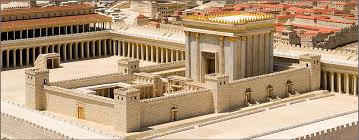
History is a frame of reference in which we may begin to discuss any topic. It just depends on how far back we want to dig [go] for a foundation to then build upon.
Ie. we could begin with discussing the economy of Rome during the 1st Century BC unto 1st Century AD, but we would then have to assume the place of Rome existed to begin with, unless we question this, and so must move our starting position further back to show that Rome actually existed [that is came to exist] to begin speaking about its economy at any given point, and so on and so forth.
So, most people, when having this discussion, will say that they will fully acknowledge and admit to the fact that the Bible has accurately recorded historical names, places and events in it.
[It is from this starting point that then the discussion usually enters about what that actually means.]
The Bible [both Old and New Testaments; Genesis to Revelation] can be tested like any other historical source
This means that in each case we can go to the gathered historical records, including but not limited to the archeological; paleontological; paleobotanical; anthropological and even the geological data.
Let us get a quick definition of 'history' that shall be utilized in any further replies; "History (from Greek ἱστορία - historia, meaning "inquiry, knowledge acquired by investigation"[2]) is the discovery, collection, organization, and presentation of information about past events. ... Traditionally, historians have recorded events of the past, either in writing or by passing on an oral tradition, and have attempted to answer historical questions through the study of written documents and oral accounts. For the beginning, historians have also used such sources as monuments, inscriptions, and pictures. In general, the sources of historical knowledge can be separated into three categories: what is written, what is said, and what is physically preserved, and historians often consult all three.[17]"[Wikipedia; History] - History - Wikipedia, the free encyclopedia.
As can easily be shown by numerous examples, places in the scripture can be verified by such methods as so noted above.
For instance, the Bible directly speaks of the city of "Jersualem":
[1]And, behold, I send the promise of my Father upon you: but tarry ye in the city of Jerusalem, until ye be endued with power from on high.Luke 24:49
[2] And he was seen many days of them which came up with him from Galilee to Jerusalem, who are his witnesses unto the people.Acts 13:31
[3] But now I go unto Jerusalem to minister unto the saints. Romans 15:25
etc.
We can then go to other sources [wikipedia; encyclopedias; google maps; historians like Josephus the Jewish Historian, Tacitus the Roman Historian, etc] and verify that such a city existed, and even today still exists, though somewhat war-torn and rebuilt in certain areas, as example [3 examples in some context]:
[1] "... This then was the army with which Titus entered enemy territory. (3) He advanced in an orderly fashion, maintaining good reconnaissance and a state of readiness for battle, and encamped at no great distance from Jerusalem." [The Histories; by Publius Cornelius Tacitus; Book 5 - (A.D. 70); paragraph 5.1] - The Jews: The Histories by Cornelius Tacitus
[2] "...1. IN the first year of the reign of Cyrus (1) which was the seventieth from the day that our people were removed out of their own land into Babylon, God commiserated the captivity and calamity of these poor people, according as he had foretold to them by Jeremiah the prophet, before the destruction of the city, that after they had served Nebuchadnezzar and his posterity, and after they had undergone that servitude seventy years, he would restore them again to the land of their fathers, and they should build their temple, and enjoy their ancient prosperity. And these things God did afford them; for he stirred up the mind of Cyrus, and made him write this throughout all Asia: "Thus saith Cyrus the king: Since God Almighty hath appointed me to be king of the habitable earth, I believe that he is that God which the nation of the Israelites worship; for indeed he foretold my name by the prophets, and that I should build him a house at Jerusalem, in the country of Judea."
2. This was known to Cyrus by his reading the book which Isaiah left behind him of his prophecies; for this prophet said that God had spoken thus to him in a secret vision: "My will is, that Cyrus, whom I have appointed to be king over many and great nations, send back my people to their own land, and build my temple." This was foretold by Isaiah one hundred and forty years before the temple was demolished. Accordingly, when Cyrus read this, and admired the Divine power, an earnest desire and ambition seized upon him to fulfill what was so written; so he called for the most eminent Jews that were in Babylon, and said to them, that he gave them leave to go back to their own country, and to rebuild their city Jerusalem, (2) and the temple of God, for that he would be their assistant, and that he would write to the rulers and governors that were in the neighborhood of their country of Judea, that they should contribute to them gold and silver for the building of the temple, and besides that, beasts for their sacrifices. ..."[Antiquities of the Jews - Book XI; CONTAINING THE INTERVAL OF TWO HUNDRED AND FIFTY-THREE YEARS AND FIVE MONTHS. FROM THE FIRST OF CYRUS TO THE DEATH OF ALEXANDER THE GREAT. CHAPTER 1. HOW CYRUS, KING OF THE PERSIANS, DELIVERED THE JEWS OUT OF BABYLON AND SUFFERED THEM TO RETURN TO THEIR OWN COUNTRY AND TO BUILD THEIR TEMPLE, FOR WHICH WORK HE GAVE THEM MONEY.] - http://www.ccel.org/j/josephus/works/ant-11.htm#EndNote_ANT_11.2b
[3]"The Chronicle Concerning the Early Years of Nebuchadnezzar II ("Jerusalem Chronicle"; ABC 5) is one of the historiographical texts from ancient Babylonia. It deals with several subjects, but the reference to the capture of Jerusalem in 597 BCE has received most attention. No less important is the description of Nebuchadnezzar's campaigns against the Egyptian king Necho II, who had tried to conquer Syria ('Hatti'). ... 12'. and besieged the city of Judah and on the second day of the month of Addaru he seized the city and captured the king [Jehoiachin; note 2]."[Jerusalem Chronicle; Nebuchadnezzar Tablet] - Chronicle Concerning the Early Years of Nebuchadnezzar II
Even a cursory trip to the middleast, Palestine, Israel, Turkey, Arabia, Egypt etc reveals that many cities, even whole countries [India, Ethiopia, Arabia] still exist to this day, bearing the very same names as they had so long ago, while certain some have since those times have gone through various changes in name.
So, now that we have a place that is historically valid [Jerusalem], we can begin to look at names and events surrounding this historical and literal place. We can also further test the scriptures in these other areas, by and alongside of other sources. There is at no point that we have to automatically assume all, but rather we may gather more at each point tested, placing one stone upon another, built upon the foundation of the evidences.
So, does Jerusalem [under scrutiny] currently exist as a city? Did it exist in the past? Did it exist in the time of the Roman Caesars, in the likes of Julius, Octavius [Augustus], Tiberias, Caligula, Claudius, Nero, ... Diocletian ... and so on, etc? Did it exist in the days of Alexander III the Great of Macedon [Greece], in the days of Darius I Hystaspes the Persian and Cyrus II The Great [of the Medes/Persians], in the days of Nebuchadnezzar II [of Babylon] and so on?
Each of the above is easily shown to be so from historical sources. Thus, through the frame of reference of History the "place" [Jerusalem] is made known.
Last edited:

